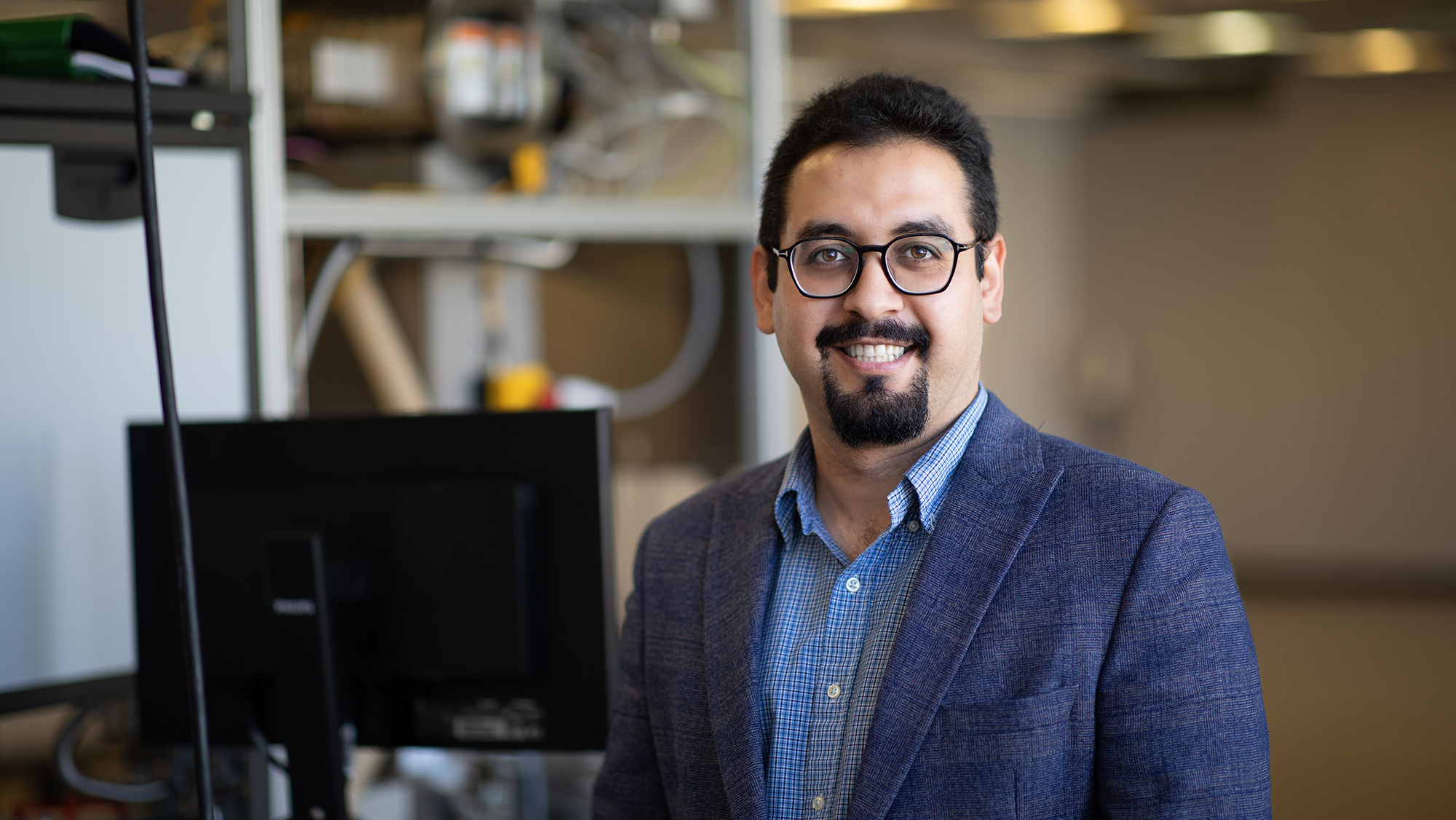
Dr. Mohsen Taheri Andani, an assistant professor in the J. Mike Walker ’66 Department of Mechanical Engineering at Texas A&M University, has been chosen as one of the co-leads for the newly established Center for Scientific Machine Learning for Material Sciences. Texas Southern University spearheads this collaborative initiative that also includes the University of Michigan and Prairie View A&M University.
This project has received a $2.25 million grant from the Air Force Office of Scientific Research, which will be allocated over three years.
“The center will not only be a hub for cutting-edge research but also a crucible for generating knowledge and promoting diversity in the scientific community,” said Andani. “Our mission extends to nurturing scientific machine learning and data science initiatives within historically black colleges, universities and minority-serving institutions. Simultaneously, this allows undergraduates and graduates a chance to engage in cutting-edge research.”
For their portion of the project, Andani’s team will utilize the capabilities of an open-access 3D printer electron beam powder bed fusion platform, Freemelt ONE, enabling them to delve into high-temperature materials research. Electron beam processing is an additive manufacturing process that uses high-velocity electrons to selectively melt materials layer by layer, creating intricate and precise three-dimensional structures. Scanning electron microscopy entails using focused electron beams to generate high-resolution images of material surfaces, providing insights into their composition and structure.
Machine learning is critical for developing novel materials with enhanced properties, which, in turn, drives advancements in various fields, including energy storage, manufacturing and healthcare.
They plan to capitalize on the natural synergy between electron beam processing and scanning electron microscopy by using sensor data to support data-driven and principle-guided scientific exploration to revolutionize materials discovery. To do so, they will need to develop further machine learning technologies, which will help materials discovery by sifting through vast, complex datasets and extracting relevant insights while expediting innovation in materials science.
“Machine learning is critical for developing novel materials with enhanced properties, which, in turn, drives advancements in various fields, including energy storage, manufacturing and healthcare,” said Andani. “Exploring innovative avenues through the center will help researchers overcome existing limitations, paving the way for groundbreaking developments in material science that could potentially revolutionize future technologies and solutions.”
In addition, the research spectrum at the center will encompass the development of mathematical models, incorporating Bayesian neural networks and various machine learning models, which promise diverse scientific applications.
Andani feels that through this collective effort, the center will push the boundaries of what is achievable in scientific machine learning and material science discovery and that the synchronization of multiple universities and varied expertise ensures a multifaceted approach to addressing challenges and pioneering advancements in the field of materials science.
“Collaboration within this initiative is not merely a mechanism but a catalyst for merging expertise, experiences and innovative ideas from different institutions,” Andani said. “By blending diverse perspectives and skill sets, the center becomes a hub for innovative solutions and robust research methodologies. This collaborative framework enables the efficient allocation of resources, minimizing redundant efforts, thereby enhancing the efficacy and impact of research outcomes.”